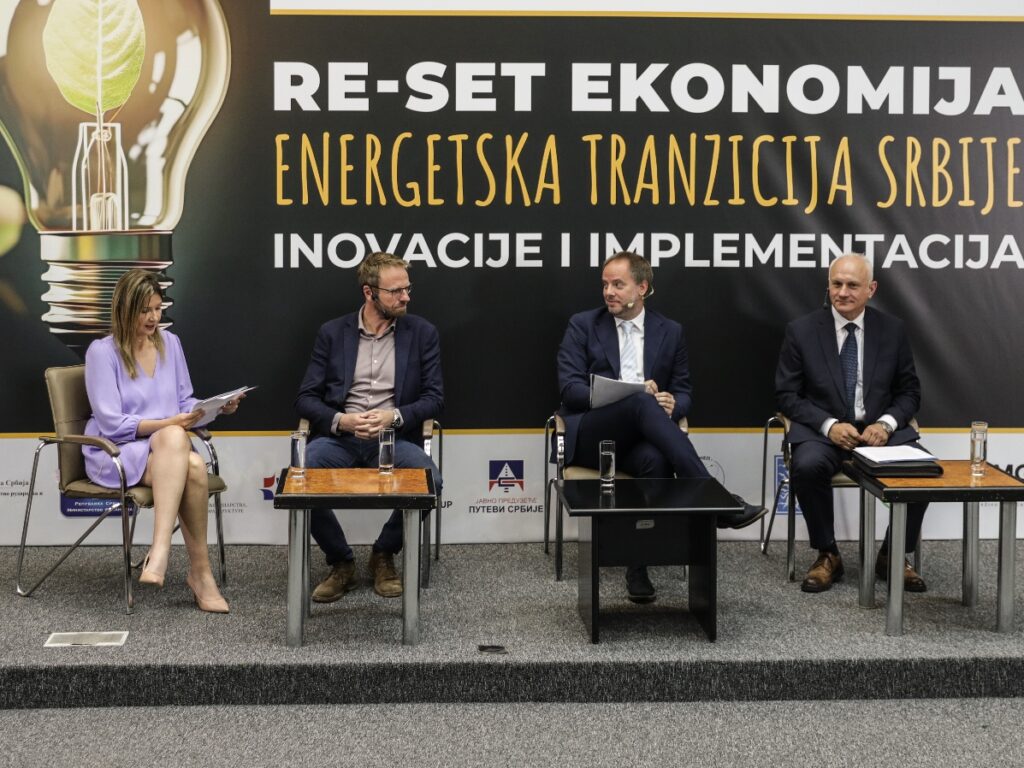If Serbia sets a goal of reducing energy from fossil fuels to 15 percent by 2050, it will have to invest $ 9.5 billion, according to the World Bank Office in Serbia, which could be heard during the conference “Energy Transition of Serbia – Innovation and Implementation”. The conference, which summed up the possibilities and challenges in the field of energy transition in Serbia, was organized by Wireless Media Group, within the “Re-set Summit” series of conferences. Partners on this project were Elektroprivreda Srbije, Siemens Energy, MT-Komex and Ford.
Panel discussions covered topics in the field of renewable energy sources such as nuclear energy, e-mobility, investment in the RES sector and decarbonization. The conference brought together representatives of the Government of the Republic of Serbia, relevant representatives of institutions and experts in the energy field and representatives of financial institutions and industry.
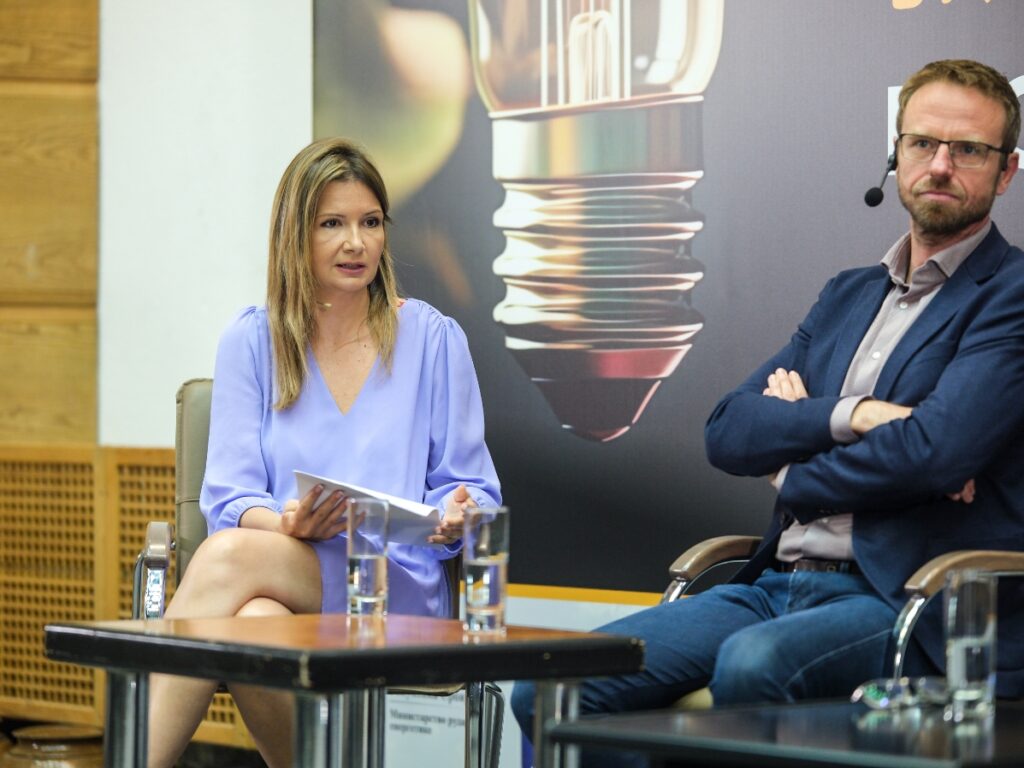
In the beginning, we were able to hear how important networking and partnership are between relevant participants in the process of energy transition and efficiency.
– The development of the RES sector requires new skills and knowledge, which creates opportunities for education and employment of young people in Serbia, said Minister Đedović Handanović, while Ambassador Gioffre praised the Minister and Serbia in their work on negotiations regarding reforms in the field of energy transition.
H.E. Ambassador Imamura mentioned the 1979 RES Act, which was the first of its kind in the world, because even then they considered it necessary for the citizens of Japan.
Energy Efficiency and Decarbonization
The first panel was moderated by the manager of the RES Association of Serbia, Danijela Isailović, who dealt with the impact of the CBAM regulation on the electricity production sector, energy efficiency as a key factor in decarbonization, investments in electricity transmission systems, as well as challenges in the implementation of energy transition measures.
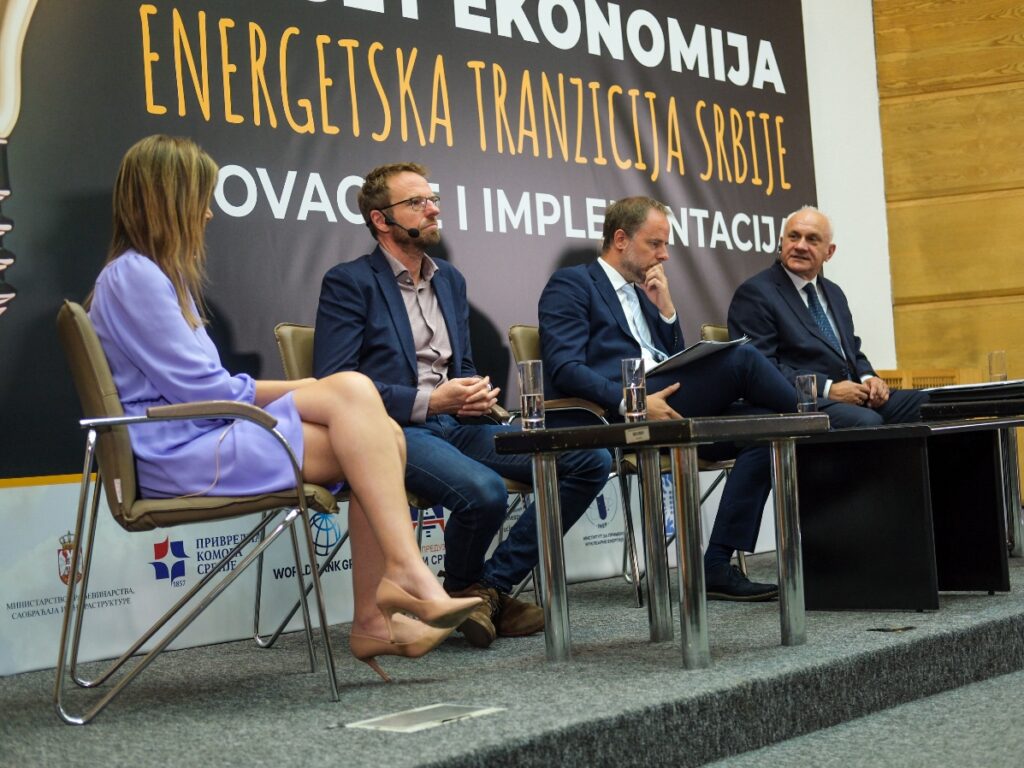
Some of the key points mentioned during the panel were the conclusions such as the need for a more aggressive approach that is possible through partnerships and large investments in the RES sector.
Investments in RES
The next panel analyzed the ways of financing energy efficiency projects, investment opportunities and economic effects of RES in Serbia, as well as the prospects for investments.
The Assistant of Minister in the Ministry of Finance said that they look at the needs of the economy so that they can implement parts of regulations that will support their needs, while the EBRD’s assistant director followed up by saying that they were working on perfecting legislation to allow investment in the sector.
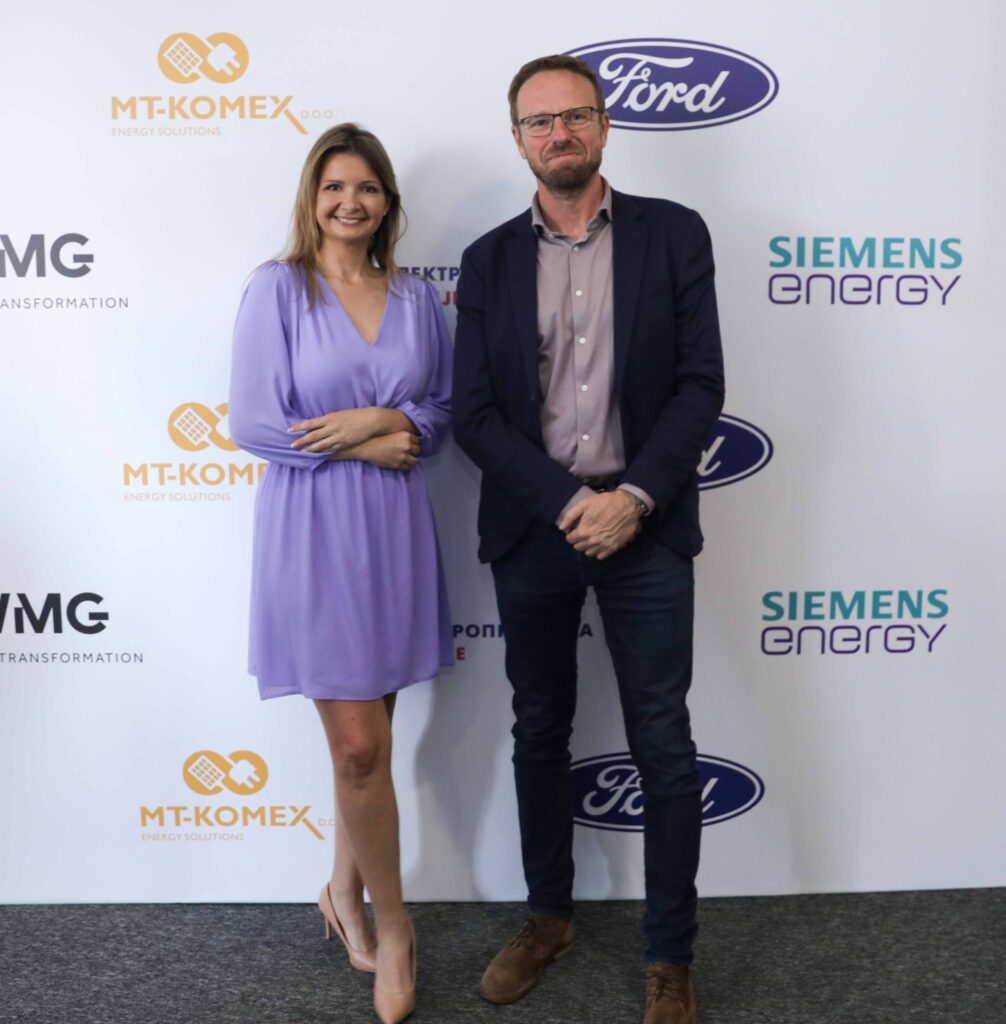
Manager of RES Serbia Danijela Isailović and managing director at Siemens Energy Petar Šainović
It was also mentioned that the education and training of experts is necessary in order to reach the goals of carbon neutrality in 2050 as soon as possible. They also concluded that there is a huge need for storage of the produced energy and that investments must be sustainable so that the economy does not collapse.
Nuclear energy in Serbia: perspectives and dilemmas
The focus of the third panel was on current topics, such as the abolition of the nuclear moratorium, the safety of nuclear power plants, nuclear waste management, as well as public perceptions and prospects for the development of nuclear energy in Serbia.
– If Serbia decides to build a nuclear power plant, it will be safe, explained Dr. Slavko Dimović, Assistant Director for Radiation and Nuclear Safety and Safety of the Institute for Nuclear Energy Vinča.
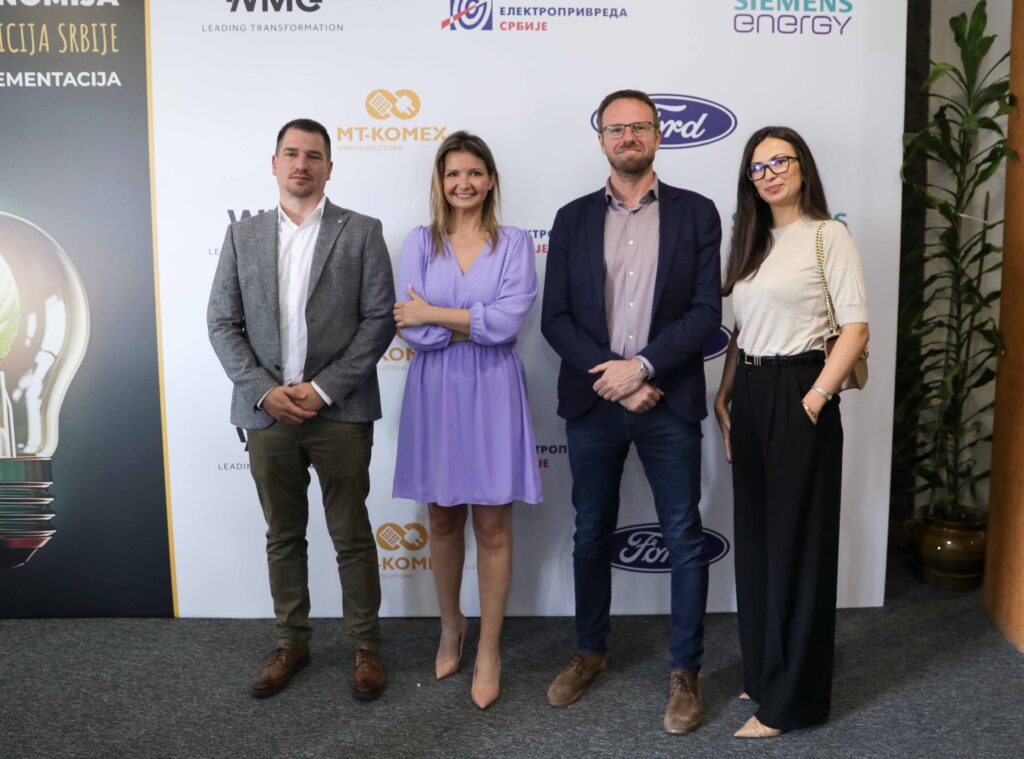
This energy is also used for diagnostics in medicine, as they do from the Institute for the Application of Nuclear Energy INEP, while as an example of good practice, Fabris Paya from the Regional Economic Department of the French Embassy in Serbia said that nuclear energy is the leading source of energy in France, where there are 56 nuclear power plants managed through special agencies for safety research.
E-mobility in Serbia: challenges and opportunities
The latest panel provided insight into the challenges in this area, infrastructure development opportunities and innovative solutions, as well as financial incentives for the purchase of electric vehicles and the latest technological innovations.
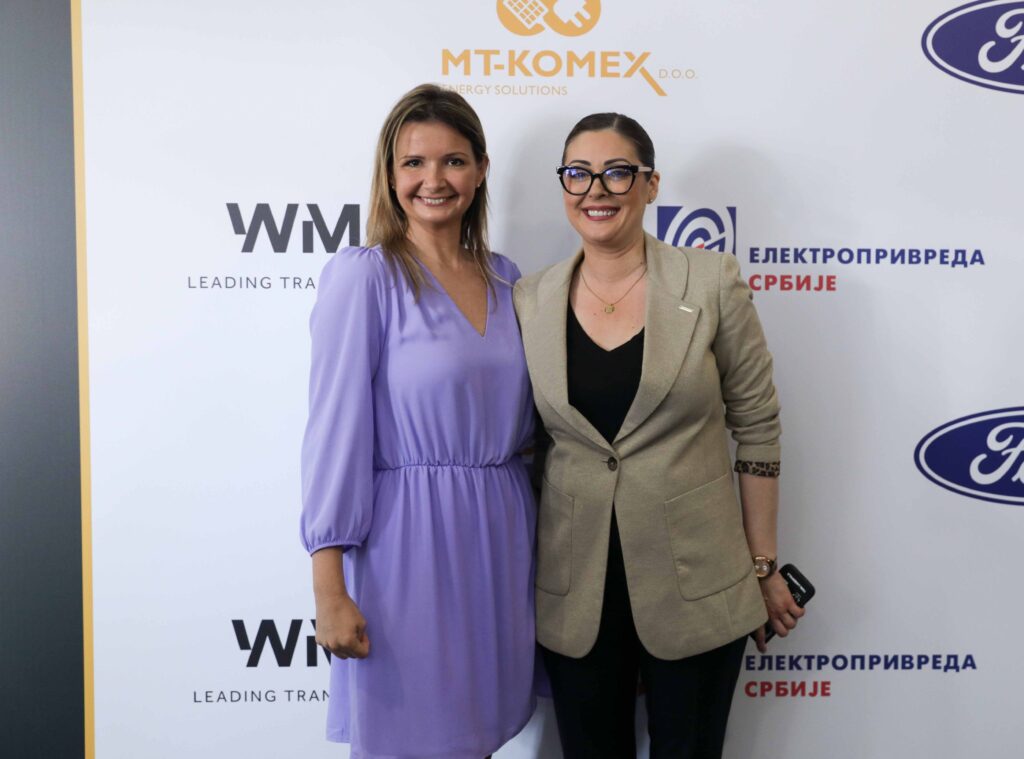
Manager of RES Serbia Danijela Isailović and Corporate Affairs & Communications Director at WMG Ruža Veljović
It was concluded that the goal of electromobility is to find a sustainable balance between humans and electricity. We learned that the PE Roads of Serbia is planning a project to turn rest areas into green rest areas. It was also pointed out that it is necessary to think about chargers for floating vehicles in which the future of greener transport is seen.


